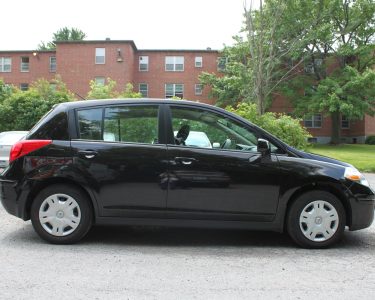The National Highway Traffic Safety Administration (NHTSA) has announced a massive air-bag recall following an eight-year investigation into the safety of air bags manufactured by Takata Corporation. The recall affects millions of vehicles across multiple brands, and is one of the largest recalls in automotive history.
The investigation into Takata air bags began in 2014, after reports of air bags rupturing and causing injuries and deaths. The NHTSA found that the air bags were prone to rupturing due to a defect in the inflator, which could cause metal fragments to be sprayed into the vehicle’s cabin.
The recall affects vehicles from multiple brands, including Honda, Toyota, Ford, and General Motors. The affected vehicles were manufactured between 2002 and 2015, and include both passenger cars and trucks.
The recall is expected to cost automakers billions of dollars, and will take years to complete. In the meantime, owners of affected vehicles are being urged to take their vehicles to a dealership for repairs as soon as possible.
The recall is a reminder of the importance of vehicle safety, and the need for automakers to take responsibility for the safety of their products. While the recall will be costly and time-consuming, it is necessary to ensure the safety of drivers and passengers on the road.
The Takata Air Bag Recall: A Brief History
The Takata air bag recall is one of the largest recalls in automotive history, affecting millions of vehicles across multiple brands. The recall began in 2014, after reports of air bags rupturing and causing injuries and deaths.
The problem with the air bags was traced to a defect in the inflator, which could cause the air bag to rupture and send metal fragments flying into the vehicle’s cabin. The defect was caused by the use of ammonium nitrate as a propellant in the inflator, which could break down over time and become unstable.
The recall initially affected a few hundred thousand vehicles, but quickly grew to include millions of vehicles across multiple brands. The recall has been complicated by the fact that the affected vehicles were manufactured over a period of more than a decade, and that the defect was not immediately apparent.
The recall has also been complicated by the fact that Takata, the manufacturer of the air bags, filed for bankruptcy in 2017. The bankruptcy has made it more difficult for affected consumers to receive compensation for their losses.
The Impact of the Recall
The Takata air bag recall has had a significant impact on the automotive industry, affecting millions of vehicles across multiple brands. The recall has also had a significant financial impact, with automakers expected to spend billions of dollars on repairs and compensation.
The recall has also had a significant impact on consumer confidence in the automotive industry. The recall has raised questions about the safety of vehicles, and has led many consumers to question whether automakers are doing enough to ensure the safety of their products.
The recall has also highlighted the need for greater oversight and regulation of the automotive industry. The NHTSA has been criticized for its handling of the recall, and for its failure to take action sooner to address the safety issues with the air bags.
Moving Forward
The Takata air bag recall is a reminder of the importance of vehicle safety, and the need for automakers to take responsibility for the safety of their products. While the recall will be costly and time-consuming, it is necessary to ensure the safety of drivers and passengers on the road.
Moving forward, the automotive industry must take steps to ensure that similar safety issues do not arise in the future. This will require greater oversight and regulation of the industry, as well as greater transparency and accountability from automakers.
Consumers also have a role to play in ensuring the safety of their vehicles. Owners of affected vehicles should take their vehicles to a dealership for repairs as soon as possible, and should stay informed about any future recalls or safety issues.
In conclusion, the Takata air bag recall is a reminder of the importance of vehicle safety, and the need for automakers to take responsibility for the safety of their products. The recall affects millions of vehicles across multiple brands, and is one of the largest recalls in automotive history. While the recall will be costly and time-consuming, it is necessary to ensure the safety of drivers and passengers on the road. Moving forward, the automotive industry must take steps to ensure that similar safety issues do not arise in the future, and consumers must stay informed and take action to ensure the safety of their vehicles.




